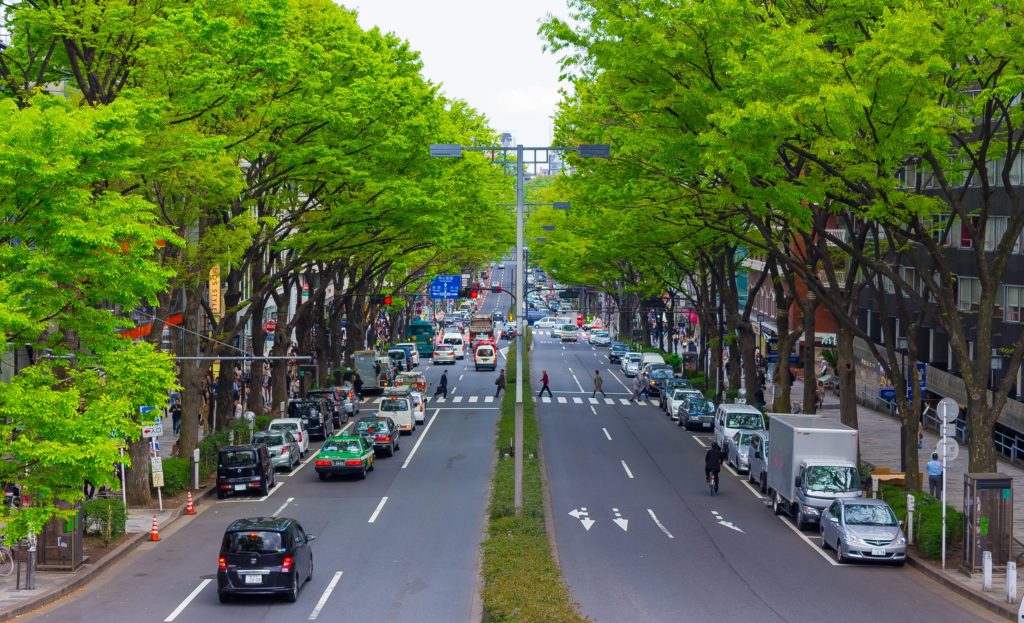Blog
Six Benefits of Urban Forestry Trees

You’ve probably appreciated the shade of a tree on a hot summer day, but did you know that trees provide a wide range of more subtle benefits as well? Here’s six reasons why trees are integral to the urban environment.
- Stormwater Mitigation. Trees help protect infrastructure by acting as a natural form of flood control. Their leaf canopies distribute rainwater over a wider area, while their root systems increase the amount of water absorbed into the ground. Together, they decrease stormwater runoff and soil erosion.1
- Cleaner Air. Trees greatly benefit air quality too! Through the process of photosynthesis, they absorb carbon dioxide and gaseous air pollutants while releasing oxygen for us to breathe. Their leaves and bark also help capture harmful particulate matter in the air.1
- Reducing Urban Heat Island Effect. Trees have a significant cooling effect in cities as well. By providing shade, they block solar heat from reaching buildings and heat-retaining surfaces like concrete sidewalks.2 The process of evapotranspiration (evaporation of water from plant surfaces, which lowers temperatures in a similar way to how sweating does) contributes also.3 Trees thus play a key role in combating urban heat islands, saving energy and expenses in cooling building interiors while also increasing comfort for residents.2
- Trees Create Healthy Environments. Numerous studies have indicated that greater tree density in an urban area leads to a wide variety of health benefits for local residents, such as decreased stress, lower respiratory and heart disease rates, and greater overall life expectancy.4 More trees in an area are also linked to lower rates of childhood obesity and respiratory disease.5
- Noise Pollution Reduction. When planted between homes and streets, trees act as a buffer against traffic noise while also beautifying a space.1
- Fighting Food Insecurity. Finally, fruit-bearing trees can serve as a free source of fresh food for local residents. Creating urban orchards in strategic locations thus helps to combat food deserts.6
With all these contributions, incorporating trees into the urban landscape is a win-win that benefits whole communities and the environment.
1. https://www.treepeople.org/22-benefits-of-trees/
2. https://www.epa.gov/green-infrastructure/reduce-urban-heat-island-effect
3. https://onetreeplanted.org/blogs/stories/urban-heat-island
4. https://www.npr.org/2019/09/04/755349748/trees-are-key-to-fighting-urban-heat-but-cities-keep-losing-them
5. https://dof.virginia.gov/urban-community-forestry/learn-about-urban-community-forestry/healthy-trees-healthy-lives/
6. https://communitygreening.org/featured-projects/
By Skylar Hines